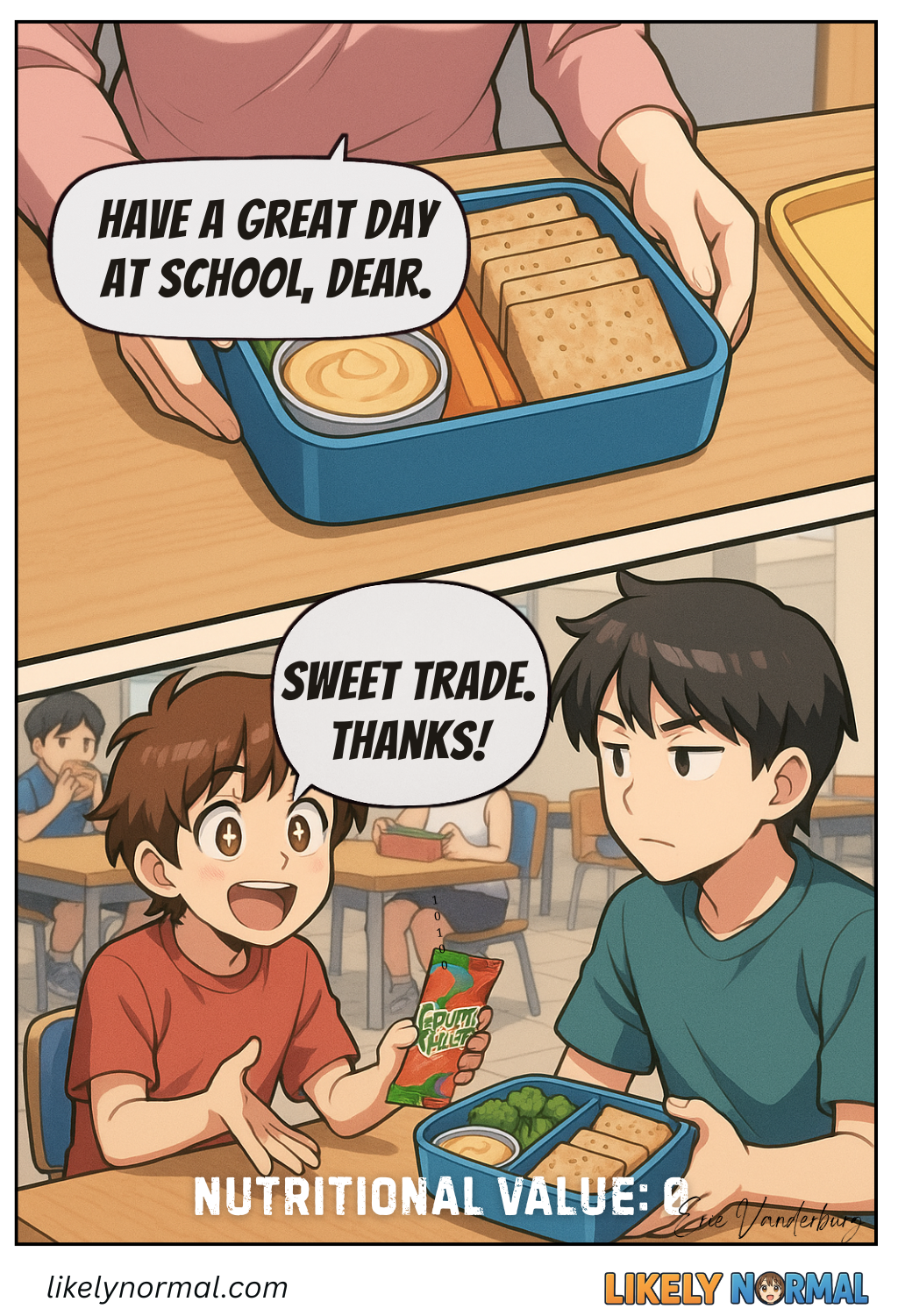Lunch Trade
Every school cafeteria operates as a thriving black market where USDA-approved meals go to die, and the currency of choice is anything neon-colored, vacuum-sealed, and nutritionally void. Parents may pack lunches with the precision of a Michelin-starred chef—organic apple slices cut into bunnies, whole-grain sandwiches shaped like dinosaurs, yogurt tubes frozen to “just the right consistency”—but children approach the lunch swap with the ruthless pragmatism of Wall Street traders. That lovingly prepared bento box? Immediately liquidated for a bag of Flamin’ Hot Cheetos and half a Ring Pop. The economics are simple: the more processed the item, the higher its trade value. A homemade quinoa salad might as well be a brick of monopoly money, while a single-serving bag of Doritos commands the bargaining power of a lunchroom Fortune 500.
The market operates on unspoken but universally understood rules. Fresh fruit is a hard sell unless it’s disguised as candy (see: “fruit snacks” with a 0% fruit content). Vegetables are essentially toxic assets unless dipped in something fluorescent—ranch dressing being the great equalizer. Meanwhile, pre-packaged desserts function like blue-chip stocks: a Hostess Cupcake never depreciates, and a rare, unopened bag of cookies from a vending machine can broker peace treaties between rival cliques. The most skilled negotiators employ advanced tactics, like the “sympathy swap” (“My mom gave me raisins again… trade me for those Cheez-Its?”), or the “distraction deal” (sliding a bag of baby carrots across the table while swiping a pudding cup when no one’s looking).
Parents, of course, remain blissfully unaware of these transactions, operating under the delusion that their child “loves hummus!” when in reality, that hummus is being used as adhesive to stick trade agreements to the underside of the lunch table. By the time the bell rings, the cafeteria floor is littered with the casualties of failed deals—abandoned carrot sticks, half-eaten sandwiches, and the occasional rogue grape rolling toward freedom. And so the cycle continues, proving once again that in the free market of childhood appetites, junk food will always be the most stable currency.
Pro Tip: If you really want your kid to eat their veggies, tell them they’re “too expensive” to trade. Suddenly, they’ll become a status symbol.

Discussion ¬